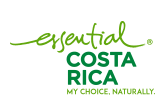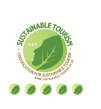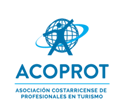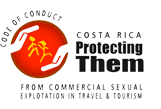- Home
- Hotels
- Services
- Costa Rica
- About
- Sustainability
- Contact
COSTA RICA TRAVEL TIPS
GENERAL TIPS IN COSTA RICA
-
Costa Rican lifestyle tends to be more laid-back than that of North American or European countries, be patient if things take longer to be done than in your home country.
-
The road infrastructure (street conditions and road signals) in Costa Rica is not very developed, so be patient when traveling within the country.
-
Cars do not yield to other cars or pedestrians! Be careful when you cross our streets.
-
Buy coffee. Even if you’re not a coffee drinker, you’re bound to know someone who is and coffee is the best buy in Costa Rica.
-
Wear conservative clothing. Foreigners often receive more attention than the want, and this is one way to help avoid it.
-
Don’t forget to ask what comes on the food you order.
-
Don’t leave things unattended on the beach while you’re swimming.
-
Always carry a photocopy of your passport, showing your photograph and the date you entered the country. Leave the original in the safety deposit box at your hotel.
-
Keep your airline ticket, important documents, cash and travelers checks in the hotel safe. Write the numbers of your travelers checks in a separate place.
-
Always change your money at a bank or your hotel, never on the street.
-
Don't wear valuable jewelry and carry only the amount of money you'll need for each day.
-
Under no circumstances give money to traffic police or other police officers.
-
Cabs are red with the license plate number painted in the middle of a yellow triangle on both doors and airport cabs are orange.
-
Inside the National Parks follow the safety tips posted inside the parks, explore the trails in groups of two or more and do not touch the plants or attempt to pet the animals.
-
At the beach find out what parts of the coast are safe and which are not and if you feel yourself being pulled out to sea, stay calm, do not try to swim directly to the shore, instead, swim parallel to the shore towards breaking waves and let them help you get back to the beach.
-
If you are going out at night, have the hotel receptionist call you a cab.
-
Please make every effort to have a minimal negative impact on the natural and human environment that you encounter and to conserve natural resources.
DRIVING TIPS IN COSTA RICA
-
Unless otherwise indicated, minimum speed on highways is 40 kilometers per hour (kph). The speed limit varies and is posted by the road. On highways and secondary roads the speed limit is 60 kph, unless otherwise indicated. In urban areas, the speed limit is 40 kph, unless otherwise indicated. Around school zones and in front of hospitals and clinics the speed limit is 25 kph.
-
When driving remember that our roads have many curves, it is better to slow down and enjoy the landscapes.
-
The law requires all car passengers to wear a seat belt.
-
If you are involved in an accident, don't move the cars until the police arrive. Try also to get as much information as you can (other driver’s ID, car plates, etc.)
-
Keep your car doors locked at all times.
-
Driving under the influence of alcohol and/or drugs is strictly prohibited. The law enables police officers to perform alcohol test on drivers.
-
Driving on beaches is strictly prohibited everywhere, except when there is no other path connecting two towns.
-
Most gas stations accept mayor credit cards. Don't show cash in open places. Fill up your car before returning it.
-
If you are involved in an accident report it by calling 911 or 800-0123456.
-
Drive confidently and stay alert. Do not stop for people making signals and never stop for hitchhikers.
TELEPHONE TIPS IN COSTA RICA
-
To call Costa Rica from another country dial the international access code followed by the country code (506) and then the local number.
-
To make a call within Costa Rica dial the 8 digit number.
-
To make a direct international call from Costa Rica dial the international access code (00), followed by the country code, then the area code and finally the local number.
-
For domestic assistance dial 1113 and for international assistance dial 1124.
-
For an international operator dial 1116.
-
Pay phones may sometimes require a coin deposit or a calling card (the calling card can be purchased in several establishments like mini-markets).
© 2023. Miki Travel Agency - MTA Travel Solutions. San José, Costa Rica.
• Phone: +506-2291-4455
• Fax: +506-2291-4567
• e-mail:This email address is being protected from spambots. You need JavaScript enabled to view it.
Toll free USA and Canada 1-877-258-2965 • From Spain 918-295-266
Hosted and e-marketing by Digital Arts S.A., San Jose, Costa Rica





